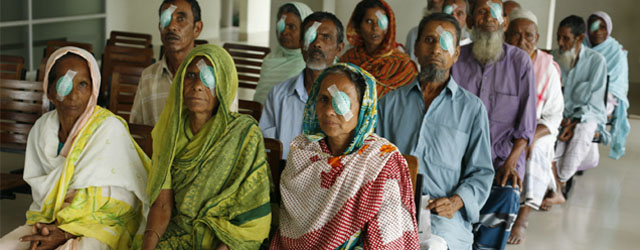FedEx and ORBIS Create Flying Eye Hospital
FedEx and ORBIS International, a leading global organization dedicated to saving sight worldwide, have kicked off a North American Goodwill Tour in Los Angeles, California with the announcement of a new $5.375 million commitment in the form of cash and in-kind gifts from FedEx.
In addition, FedEx will donate an MD-10-30 cargo aircraft to ORBIS to be the third-generation Flying Eye Hospital. The Flying Eye Hospital will also visit Burlington, VT, Dallas/Fort Worth, TX, Memphis, TN, and Toronto and Ottawa, Canada between August and November to raise public awareness of the need to eliminate avoidable blindness.
“FedEx has supported ORBIS for almost three decades, one of our longest running relationships with a nonprofit,” said James R. Parker, executive vice president, FedEx air operations.
“Today, we’re taking our work together to the next level by creating the next generation Flying Eye Hospital, which will significantly improve the lives of millions of people who otherwise would have been blind, but now will experience the gift of sight.”
The new Flying Eye Hospital, an airplane with a fully functioning eye hospital on board, will be built on an MD-10-30 freighter aircraft and will utilize a modular design concept.
The Flying Eye Hospital is a tool that brings dedicated eye care professionals from across the world to developing countries to provide two to three weeks of training and surgical demonstrations.
ORBIS volunteer doctors impart to local doctors, nurses, biomedical engineers and technicians the skills necessary to provide eye care to their communities that will prevent and treat avoidable causes of blindness such as cataracts, glaucoma and diabetic retinopathy.
Tragically, there are 39 million blind people worldwide; 80% of cases are preventable and treatable. 90% live in developing countries where there is a severe lack of proper medical care. ORBIS says since 1982 it has conducted programs in more than 85 countries, impacting more than 15 million lives.
“Preventable blindness can be avoided through routine, inexpensive medical procedures and eye care education,” said Dr. Barbara DeBuono, president and CEO of ORBIS International.





